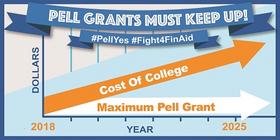If you have a passion for prose, you can earn money by putting your writing talents to good use - even while you attend community college. Whether you enjoy composing essays or creative pieces, autobiographies, or non-fiction work, community college students can participate in writing competitions to be published and earn accolades, gifts, and monetary prizes. Some national competitions exist, but many more local competitions are available nationwide at community colleges.
This video offers some tips on how to win a writing contest.
National Contest - Norman Mailer Community College Writing Award
The Norman Mailer Center, the Writers Colony, and the National Council of Teachers of English co-sponsor a national essay contest for community college students each year. The contest is specifically for authors of creative non-fiction writing. The competition is open to all full-time students at community colleges, technical schools, and junior colleges nationwide. The contest's winner receives a $2,500 cash award, as well as free travel and lodging to attend the Writers Colony award ceremony.
Contest submissions are reviewed by a panel of teachers and writers who judge the entries on the artful treatment of originality, subject matter, voice, and style. Additionally, judges examine the entry’s overall aesthetic and emotional impact. Finalists selected by the panel will review their work by a distinguished author or panel of authors who will determine the winner.
Local Contest - John F. Kennedy Profiles in Service Essay Contest
John F. Kennedy University created the Profiles in Service Essay Contest to honor the commitment to service that President Kennedy so often spoke of during his brief presidency. The competition is open to any community college student in California. Submitted essays must describe a service or an act of service performed by an individual that brought benefits to another person or group of people. The essays must be short – no more than 1,000 words – and must be the author’s original work.
The winner of the Profiles in Service Essay Contest is awarded a $2,000 scholarship to attend John F. Kennedy University. The winner and his or her family are also invited to attend the alumni day celebration on the university’s campus, where the winner receives the Profiles in Service Award. The second-place winner receives a $1,000 scholarship to the university, and five finalists receive a $500 scholarship to the university.
Local Contest – David A. Garfinkel Essay Contest
Students attending a community college in the State University of New York system or the City University of New York system can submit their work to the David A. Garfinkel Essay Contest. This contest is sponsored by the Historical Society of the Courts of the State of New York. It focuses on contemporary legal issues, such as free speech and free press in the electronic age. Essays must be 1,500 and 5,500 words long and represent the author’s original work. Prize packages range from $1,000 to $1,500. Winners are also invited to attend Law Day ceremonies in Albany, where they are honored with a luncheon attended by state officials, including justices from the New York Supreme Court. Winning essays are published in their entirety on the Historical Society’s website.
Local Contest – Oakland Community College Student Essay Competition
Oakland Community College hosts a student essay competition with thousands of dollars in prizes for the winning writers. The first-place entry garners $1,000, the second-place receives $750, and the third place-receives $500. All three awards are limited to students who have not yet graduated with their associate’s degree. Student winners are recognized in an on-campus ceremony, and their work is published on the college’s website. Essays are limited to a minimum of 1,000 words and a maximum of 1,250 words. Topics vary from year to year. However, they are generally non-fiction topics that require writers to conduct research, citing at least four sources to support their opinions.
This video offers an overview of writing competitions you should know about.
Privately-Sponsored Essay Competitions
An array of private companies also host writing competitions for community college students. Organizations like National Geographic, the Ayn Rand Institute, and the Atlantic Monthly have provided community college students with writing contests in recent years. The National Council for Black Studies holds an annual competition for collegiate writers that focuses on issues related to the Africana experience, including, but not limited to, art, education, literature, and politics. Stage of Life, a non-partisan, grassroots educational blog, hosts monthly essay competitions for college students on several topics.
Through on-campus, local, and national writing competitions, your opportunities for earning recognition and monetary prizes are endless. Check with the financial aid office at your school for information regarding school-based and local competitions. Browse the Internet for national competitions and those sponsored by large corporations and write your way to prize money, trips, scholarships, and recognition as a top collegiate writer.
Questions? Contact us on Facebook. @communitycollegereview















